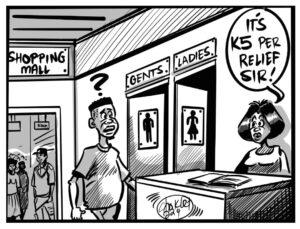Zambia Environmental Management Agency (ZEMA) public relations officer Irene Chipili says chain stores that are selling plastic bags to customers are doing it legally and have not breached any law.
In an interview, Chipili also said compliance levels on the use of recommended carrier bags among chain stores has improved.
“The law itself is called Extended Producer Responsibility (CPR) Statutory Instrument N0. 65 of 2018. So that Statutory Instrument does not ban the use of plastic carriers in Zambia. What it actually bans is the use of plastic carrier bags and plastic bags that are less than 30 micrometer in thickness. So if you noticed like for instance in chain stores, they now have thicker plastic bags from what we had previously. So it basically phased out what we referred as single use plastic carrier bags or the thin bags. But it does not ban the use of plastic carrier bags,” Chipili explained.
She said the recommended carrier bags which are being sold in chain stores are recyclable and durable as well as friendly to the environment.
“The reason behind is that the thicker plastic bags are recyclable and more durable and in that sense they are more friendly to the environment. In fact that law goes beyond that. It covers 12 other products or packaging materials. So it includes non returnable glass bottles, plastic bottles, used oil, used tyres, electrical and electronic products, chemical containers, cottons and so on. So there is a whole range of packaging products that are affected. The idea is to make the manufacturer of certain packaging products responsible for their waste. So for example if somebody is in the business of selling bottled water for so many of these beverages that are on the market, according to that Statutory Instrument, there responsibility is now for the entire life circle of that product. So they are responsible even for taking that waste out of the environment,” Chipili said.
“And it is legal for the service provider to actually sell that bag or even an alternative bag. So the ones that are selling bags are doing it legally. The law applies to those in small scale traders as well. The only challenge is we do not regulate that small scale trader on the streets but it’s easy for us to regulate the chain stores because they are more established entities. So the way we are dealing with that small scale trader is we are dealing with the source of their plastic or packaging products. So it may take a bit of time but in the next weeks or months to come, once we curtail their source by making sure that their manufacturer is compliant, eventually we will see compliant plastics on the market. So we are aware of that challenge with a small scale trader.”
And Chipili commended chain stores for the compliance levels they and exhibited since the ban on plastic bags.
“With the chain stores I am happy to say that we are quite happy with the compliance levels among the chain stores. We actually have micrometers as a regulator and we are able to do random checks and the chain stores are largely compliant even with the plastic carrier bags,” said Chipili.












